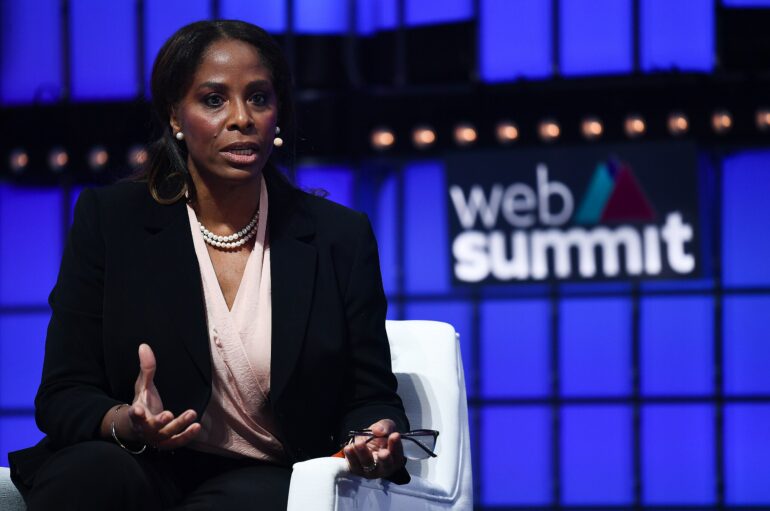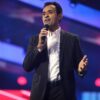Democratic Del. Stacey Plaskett of the Virgin Islands acknowledged Wednesday that she would not have questioned Michael Cohen on certain topics during a high-profile House hearing had it not been for text messages she received from Jeffrey Epstein — the disgraced financier and registered sex offender whose associations continue to cast a long shadow over political and cultural elites.
Plaskett narrowly avoided censure after the House rejected a resolution targeting her over the recently surfaced messages, with the measure failing 214–209. Several reported GOP defections aimed at shielding Republican Rep. Cory Mills of Florida — who faced his own censure attempt introduced by Rep. Nancy Mace over domestic-abuse and stolen-valor allegations — contributed to the outcome.
Pressed by CNN’s Pamela Brown about why she initiated contact with Epstein in the first place, Plaskett offered a justification rooted in her background. “I’ve been a prosecutor for many years,” she said, emphasizing that information often comes from questionable sources. She described the exchange as occurring seven years ago, at a time when the high-stakes Cohen hearing — involving alleged hush-money payments to Stormy Daniels — had drawn intense political and media scrutiny. According to Plaskett, she was being inundated with messages from a range of individuals, including Epstein.
Plaskett criticized The Washington Post for suggesting that Epstein had effectively directed her questioning. She argued that the paper seized on a single line from her five-minute interrogation of Cohen and ignored her broader experience and preparation. She insisted her inquiries were informed by “20 years of experience” and input from multiple sources, not solely Epstein.
Brown later posed a direct question: Would Plaskett have asked Cohen about Rhona Graff — a former assistant to Donald Trump — had Epstein not mentioned her? Plaskett replied, “Probably not,” though she stressed that she also questioned Cohen about several other Trump-adjacent figures based on information she had gathered elsewhere.
The broader backdrop to the controversy underscores Epstein’s expansive network. Even after his conviction, his circle included public figures such as L Brands founder Lex Wexner, director Woody Allen, and former Prince Andrew — associations that continue to raise questions about why so many remained connected to him.
Plaskett’s admission also lands amid broader public attention on allegations — and the absence of them — surrounding President Trump’s interactions with Epstein. Virginia Giuffre, one of Epstein’s most prominent accusers, did not allege misconduct by Trump in her posthumous memoir, released six months after her suicide. Her ghostwriter told People magazine that Giuffre had been a fan of Trump. Other Epstein victims told NBC’s Hallie Jackson in a September panel that they had no knowledge of wrongdoing by Trump.
Attorney Bradley Edwards, who represented multiple Epstein victims, has previously described Trump as unusually cooperative during his 2009 investigative efforts. In a 2018 recording, Edwards recounted that Trump was the only person who returned his call after receiving a subpoena and offered full transparency: “He was very helpful in the information that he gave and gave no indication whatsoever that he was involved in anything untoward.”
As scrutiny intensifies around who communicated with Epstein and why, Plaskett’s explanation — that the disgraced financier was simply one of many sources feeding her information for a politically charged hearing — is unlikely to dispel broader concerns about the judgment of public officials who maintained contact with him.
[READ MORE: Calley Means to Join Trump Administration as Key Link Between MAHA Movement and MAGA Coalition]



